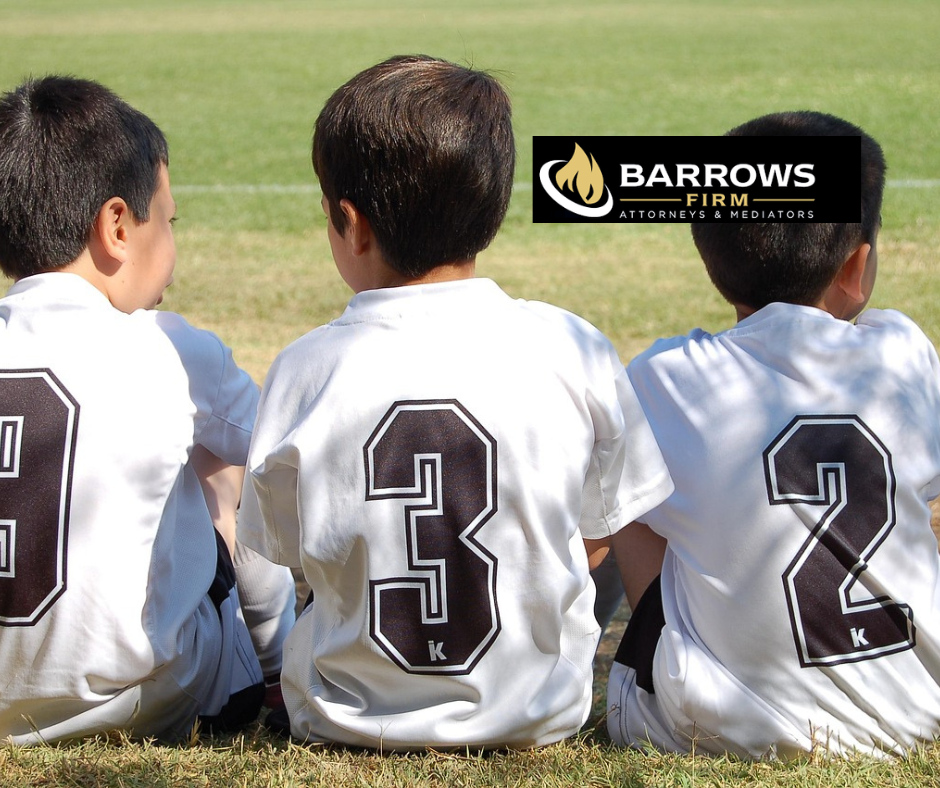When Co-Parenting and Fall Sports Collide: Managing Disagreements and Protecting Your Kids’ Best Interests
As children grow older, their involvement in sports often becomes more competitive and demanding. Practices and games can dominate evenings and weekends, travel teams can keep families on the road for much of the year, and the intensity of competition can raise new questions about safety and well-being. For co-parents, this can put a serious strain on an already delicate balance. Even the most cooperative parenting arrangements can be tested when schedules become chaotic and each parent has their own vision for what is best for the children.
In many blended families, new spouses or partners may also have strong opinions about a child’s sports participation, adding another layer to an already complex situation. While input from caring adults can be valuable, it can also trigger conflict when everyone is not on the same page. Co-parents already face the challenges of coordinating across households, and disagreements about time commitments, travel expenses, and physical risks can quickly escalate into disputes that affect the family dynamic.
When Sports Safety Becomes a Legal Issue
Sports Law and Player Safety: A Deep Dive
Disagreements about sports are not just about inconvenience; sometimes, they involve serious safety concerns. One parent may believe a sport is too dangerous for a child’s age or skill level, especially in high-impact activities such as football, hockey, or competitive cheerleading. Others may worry about overuse injuries, heat exhaustion, or the mental toll of an intense competitive environment. These concerns are not only medical but also emotional, as children may feel pressure to perform at higher levels than they are ready for.
If these concerns rise to a level where a parent believes the child’s welfare is at risk, legal intervention may become necessary. In Texas, a substantial change in circumstances affecting the child’s best interest can be grounds to seek a modification of custody or parenting plans. This might mean asking the court to limit certain activities, require mutual agreement for participation in higher-risk sports, or adjust the schedule to ensure children get adequate rest and balance in their lives. When safety is at the heart of the dispute, courts will weigh evidence, expert opinions, and the overall impact on the child’s physical and mental health.
Listen to the Barrows Firm Podcast: We Love Creating Great Shows For You!
Enforcement and Modification of Parenting Plans
The Child Custody Modification Process in Texas
Parenting plans and court orders are designed to provide structure and predictability, but they can become outdated as children grow and their schedules change. For example, a plan made when a child was in elementary school might not account for the demands of high school athletics. If one parent consistently disregards the agreed-upon plan, such as enrolling the child in a sport without the other parent’s consent or failing to coordinate schedules, enforcement proceedings may be necessary to ensure compliance.
In other cases, a modification may be the most practical solution. This could involve revisiting the time-sharing arrangement, travel obligations, or decision-making authority regarding extracurricular activities. For instance, if a child’s competitive soccer schedule requires out-of-town travel every other weekend, adjustments to visitation schedules may be needed so both parents share in the responsibilities and experiences. While these legal proceedings are significant, they can be essential to protect the child’s health, ensure fairness between parents, and reduce stress on the entire family.
Finding Common Ground Before Heading to Court
While the legal system provides a framework for resolving disputes, it is always preferable for parents to reach an agreement outside of court. Open communication, mediation, and a willingness to focus on the child’s needs rather than adult disagreements can go a long way toward finding workable solutions. Co-parents who approach sports planning as a team, even if they live in separate households, can help their children enjoy the benefits of athletics without the stress of ongoing conflict.
One practical step is creating a shared sports calendar that both parents can access and update. This ensures no surprises about practice schedules, game times, or travel plans. Another option is to agree on clear safety protocols, such as limits on consecutive practice days or medical check-ins during intense training periods. The truth is, the years go by quickly. Those “18 summers” of childhood can disappear faster than many parents expect, and spending them in conflict over schedules and competition robs families of valuable memories. By addressing sports-related disputes proactively and respectfully, parents can keep the focus where it belongs: raising happy, healthy kids who know they are supported by all the adults in their lives.
Attorney Leslie Barrows: Experience You Can Rely On
Attorney Leslie Barrows, founder of The Barrows Firm in Southlake, has extensive experience handling high-stakes family law matters in Texas, including custody disputes involving complex extracurricular schedules and sports participation. Her background includes representing parents in cases where the child’s safety, education, and extracurricular activities have become points of contention. She understands the emotional and legal challenges that come with co-parenting and competitive sports, and she is skilled at finding solutions that balance the needs of the child with the rights of each parent.
With years of courtroom experience and a reputation for strong advocacy, Attorney Barrows knows when to fight for her clients in litigation and when to pursue collaborative solutions that preserve important family relationships. She takes the time to understand each family’s unique circumstances, ensuring that legal strategies are tailored to protect children’s best interests while providing parents with clear guidance on their rights and obligations. Whether it is enforcing an existing parenting plan, negotiating a modification, or representing clients in high-conflict custody trials, Leslie Barrows offers the legal skill and dedication that make a difference.









